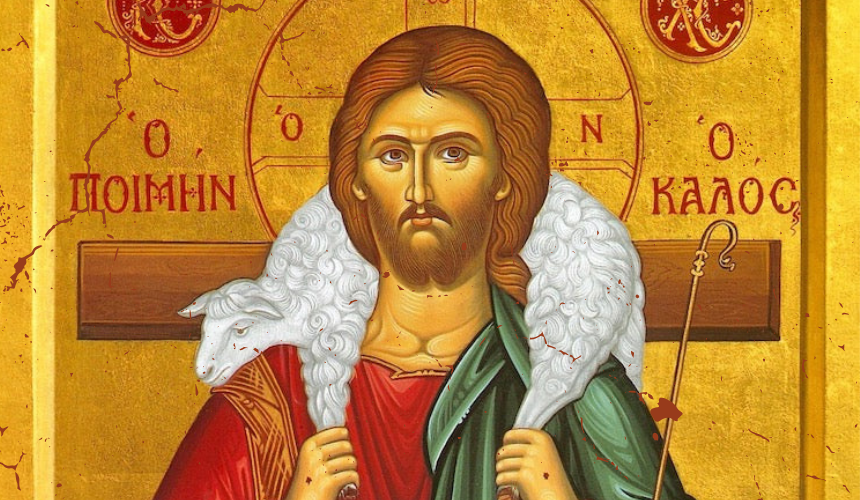Sermon: Allowing Ourselves to Be Found
- Nicole Walters
- Sep 15, 2025
- 7 min read
Church of the Nativity - Fayetteville, GA
September 14, 2025
14th Sunday After Pentecost

Watch:
Listen:
Read:
New Year’s Eve 2018 is a day burned into my memory. My family was living in Bangladesh, and we had the rare opportunity to go on holiday with friends to Malaysia. The kids were seven and nine, and this was their first big vacation. Christmas had been spent wandering a rainforest park, and on New Year’s Eve, they tried something entirely new to them—a waterpark. It was magical.
But that’s not why I remember this date so vividly. It’s because it was the day we lost our then seven-year-old son, Aidan.
We stayed until the park was closing, trying to soak in every moment. When it was time to leave, we found ourselves in a crush of people, all heading toward the lockers. And then, in a heartbeat, we realized Aidan wasn’t with us.
I’ve never felt a fear like that before—pure, gut-wrenching terror. We were in a country where we didn’t live, surrounded by strangers, with no way to contact our son. A thousand thoughts rushed through my mind: Do we go look for him? Do we stay there and hope he remembers what to do if he gets lost? We’d told him before: stay put or find a trusted adult. Would he remember?
If you’ve ever experienced a moment like that as a parent, or even as an adult responsible for someone you love, you know the flood of emotions: fear, panic, sometimes even anger. I was surprised that after the fear, I felt anger rise up in me. Not because he had disobeyed, but because of the love I had for him. Like a mama bear, I just wanted to do anything could to defend and protect him. And he had wandered off and put himself in danger. And all of this occurred inside me in mere seconds.
And it’s that same desperate, searching love, the love born from care, that Jesus is describing in the parables of the lost sheep and the lost coin we encounter in today’s Gospel.
He tells these parables in response to the Pharisees and scribes grumbling that he welcomes and eats with people they consider sinners. These stories are familiar to us if we’ve spent any length of time in church. And even more famous is the third in this trio of parables we didn’t read today: the prodigal son.
Now, my instinct when I’m going to teach on a familiar passage is to find something new about it, dig up a scholar who says something that makes us think differently. This week, I started my studies of Luke 15 using Lectio Divina.
If you’ve never practiced Lectio, it is an ancient practice of devotional reading of Scripture. You read a passage slowly and try to listen—as St. Benedict would say—with the ear of your heart. You aren’t studying the passage or trying to understand it only with the intellect. You are trying to encounter God in it, and you notice a word or phrase that rises up to meet you from it.
What kept coming up for me every time I read was the sense of ownership in these parables. Both stories are about someone who possesses something and loses it. “Rejoice with me, for I have found my sheep that was lost,” says the shepherd. The woman had possessed ten coins, and then she lost one.
I never got any further than there, reading commentaries or looking into what scholars say about these passages. Because God so clearly spoke to me about something in my own story and my connection to these parables.
I had always heard these passages preached with the emphasis on salvation: a sinner was lost, now he’s been saved, heaven rejoices. Being lost meant not having a relationship with God, and being found meant you did. That evangelistic reading is certainly there. But what kept rising to the surface for me was this: the sheep and the coin already belong to the one who goes searching.
And here’s what kept resonating in my heart as I read these stories: that’s who we are to God. We are not strangers. He doesn’t see us as sinners, as lost. We are cherished, treasured. We are not outsiders God reluctantly takes in only after we’ve come home. Through God’s covenant love, we already belong to Christ.
Yet…we often still lose our way. Like the sheep, we wander off. That’s when the story about my curious little boy in the waterpark immediately came to mind - along with reliving those flashes of fear, then anger. It was that knowledge that he was mine to protect and care for, and that with me was the best and safest place that compelled me to feel that way. Because I wanted the best for him. And it was this beautiful moment when God assured me that he comes searching, not out of obligation, but out of that fierce, protective love.
We stray, sometimes knowingly and sometimes carelessly. We may get caught up in the busyness of life, like my son did in the bustle of the crowd, and we forget to keep our eyes on our Father. Or we may see something over there that looks a little more appealing than God, and we go after it.
We may not even realize we’re disconnected from God until we look back and notice the space between us. I think this is the lostness Jesus wanted me to focus on in these parables this week. This way we can, like the old hymn says, be prone to wander, prone to leave the God we love.
We can be assured that being lost doesn’t change who we are in God’s eyes. We are still God’s prized possession. But it does change how safe, how connected, and how joyful we feel. And this is where something we don’t often talk about comes in - repentance. Repentance is the grace of waking up, turning back, and stepping again into the embrace of the One who has never stopped claiming us.
Too often, we hear “repentance” as shame, guilt, or regret. But the biblical term metanoia literally means a change of mind. It is turning toward a better future. These parables remind us that God’s pursuit is not a matter of judgment or tallying failures. It’s about love. God notices when we stray, searches for us, rejoices when we return, and welcomes us home.
Our other readings today give a voice to this reality. Psalm 51 is not a prayer of worthiness—“take me back if I’m good enough”—but a plear for restoration in that closeness the psalmist longed to have with God: “Create in me a clean heart, O God, and put a steadfast spirit within me. Do not cast me from your presence, or take your Holy Spirit from me.”
Paul, in 1 Timothy, exemplifies this patience of God with us. Once a persecutor of the church, Christ sought him out. Paul emphasizes God’s patience and mercy with us when we don’t deserve it.
For me, this is the truth that hit home this week - that lostness is not about a once-and-done prayer to God, and it’s not about failure. It’s about our distance from the God who wants to be close to us.
We are found not once, but again and again. Wandering is part of our lives. Distraction, selfishness, fear—all of these lead us away from the joy and closeness God intends. Repentance is the practice of returning, of allowing ourselves to be found.
This week, I came across a beautiful prayer of confession in the Prayer Book of Saint Augustine: “I am your own, marked as yours in baptism and sealed by the Holy Spirit, and yet I have not been true to your call or faithful in your service.”
Every day gives us the chance to pray this kind of prayer. Every day, God searches for us. And every day, we are invited to turn back toward God’s presence.
Benedictine spirituality offers a powerful framework for this daily return. For the past decade, I’ve immersed myself in the Rule of St. Benedict—a way of life that monks and nuns have followed for over 1,500 years. I’ve studied contemplative Christianity and worked to weave it into my own life and practice.
Benedictines take three vows: stability, obedience, and conversion. It’s this third vow—conversion—that has most shaped my understanding of spiritual formation as a lifelong process of turning toward God. St. Benedict’s well-known reminder, “Always we begin again,” has been a lifeline for me. Our lives are not defined by getting it all right or by the moments when we stumble. Instead, each day is another chance to begin again, to grow in faith, and to practice a deeper attentiveness to Christ in all things.
Confession and repentence I think they too often get a bad wrap. They are not burdens. They are invitations to be found and to rejoice in God’s love. The goal is not regret, but renewal. Not shame, but joy. The shepherd throws a party. The woman calls her friends. Heaven rejoices at our return.
We certainly rejoiced at Aidan’s return that New Year’s Day in Malaysia. I resisted the urge to panic, and after we sent friends to look in the locker room and restrooms while I stayed put in case Aidan returned, I went up to one of the workers and described the situation. She frantically told me to wait right there and ran off. It felt like an eternity waiting, but when I turned around to look for her, there she was with another worker, walking up with my son.
He had done what we’d told him to do. He found an adult and told him he was lost and that his parents were headed for the locker rooms to change. The woman I spoke to knew there was a lost boy out there looking for his parents, and that parents were looking for their son. And she reconnected us.
I melted into a puddle of tears and hugged him more times than he probably wanted as soon as he was returned to my side. There was no more fear and certainly no anger in that moment - only joy. That is the heart of God when you and I return: pure joy, not disappointment.
Aidan was doing exactly what he needed to do when he was lost. He was looking for me. And because he was seeking, he found me. That’s what repentance is like. When we realize we’ve wandered, when we stop and turn back, when we begin to look for God, we find that God has already been looking for us. Repentance is not about earning God’s love; it’s about allowing ourselves to be found by it.
And the promise of the Gospel is this: every time we begin again, we are met not with reproach, but with rejoicing. Not with disappointment, but with delight. For the God who searches, the God who finds, the God who runs to meet us on the road, is the God who cannot help but celebrate when we come home.



Comments